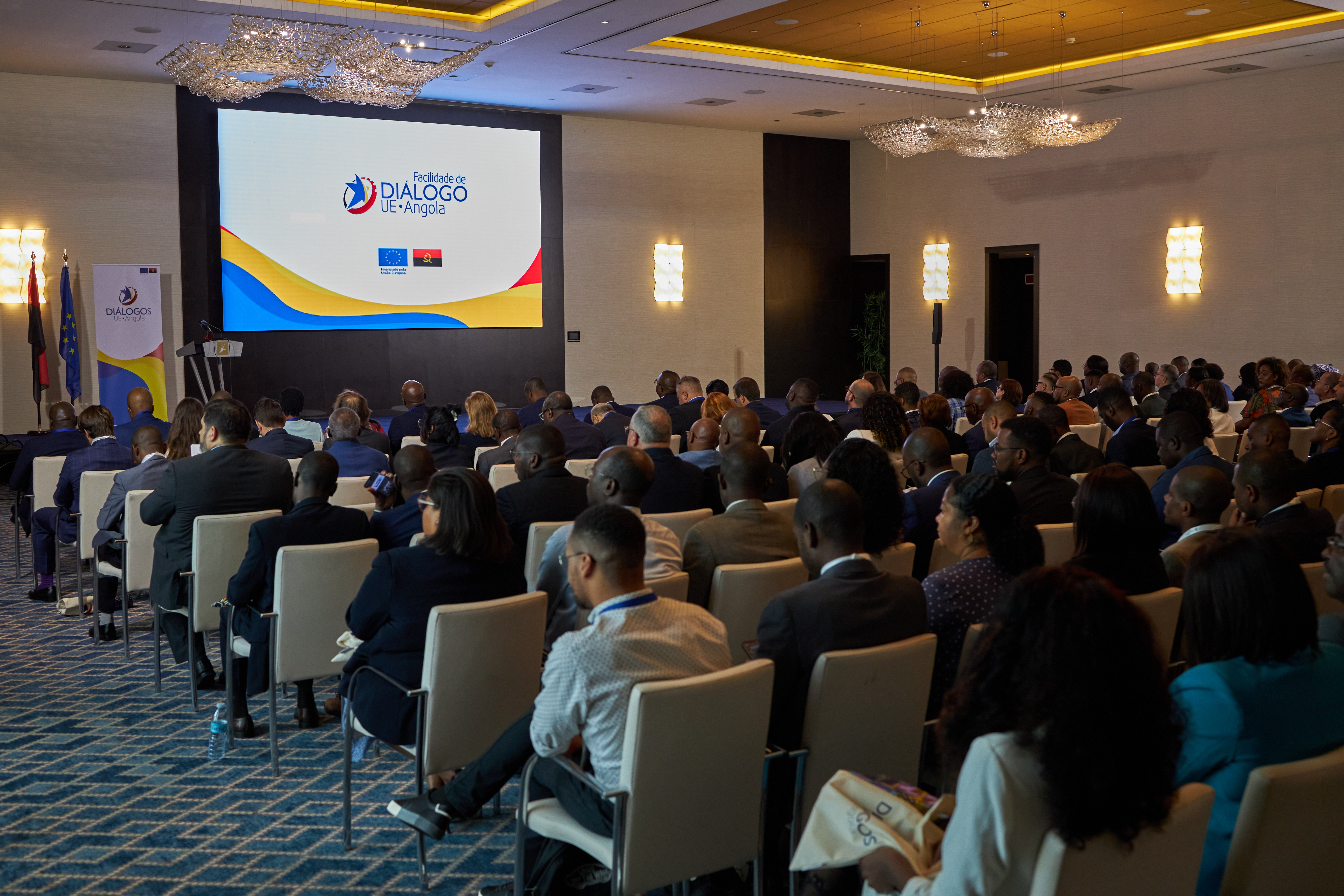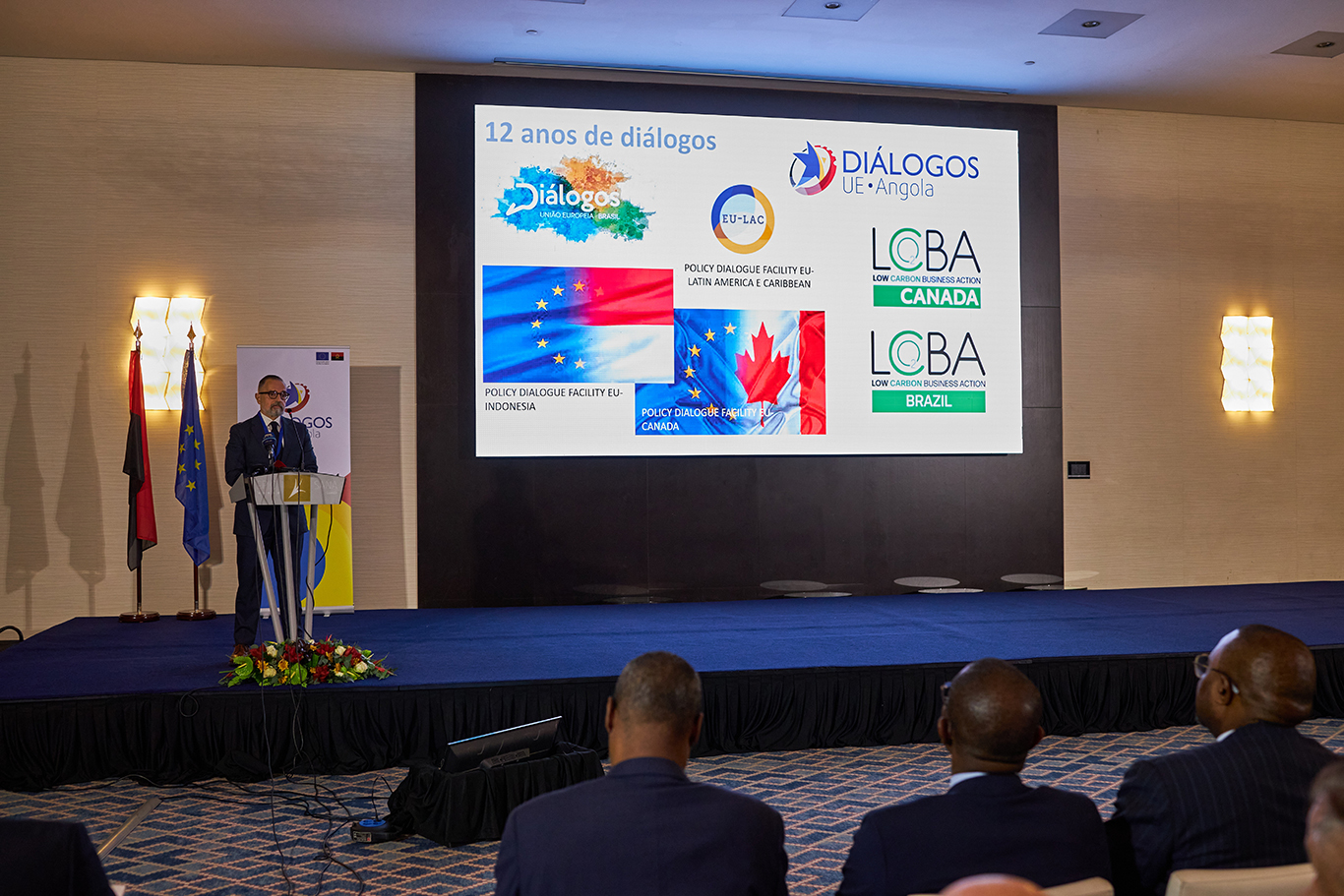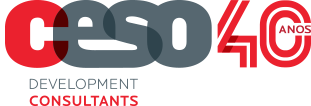




On July 9th, the new phase of the EU-Angola Dialogues program was presented in Luanda. Funded by the European Union, the EU-Angola Dialogue Facility is part of the Angola-European Union Joint Pathway, aimed at promoting and enhancing relations and partnerships between the parties to increase the effectiveness of their political dialogue.
During the event, the results of the first phase were presented, and the new phases of Dialogue, as well as the approaches and opportunities that now arise, were announced. A roundtable was also held with the institutions that previously benefited from the support provided, where they shared their experiences with the program.
Rui Miguel Santos, CEO of CESO, attended the event, advocating for greater "exchange between the various Dialogue Facilities among the various institutions involved in this mechanism so that they can share best practices, lessons learned, and have a global intervention logic that is evident to all, which will greatly facilitate this sharing."
The European Union Ambassador to Angola, Rosário Bento Pais, highlighted that the second phase of the EU-Angola Dialogues program "will continue to strengthen dialogue in the areas covered by the Angola-European Union Joint Pathway."
The National Director of International Cooperation for Development, Gil Henriques, considered that the moment "reflects the robustness and vitality of Angola's strategic partnership with the European Union, a key partner in supporting the country's economic and social development," ensuring the continued involvement and commitment of the government to guarantee that the results of the second phase are fully achieved.
CESO and GIZ provide Technical Assistance for the EU-Angola Dialogue Facility, which is responsible for implementing the program and fulfilling its objectives, supporting governance bodies, executing their guidelines and deliberations, and promoting and ensuring regular coordination of the program's institutional partners.
To learn more about the first phase of the EU-Angola Dialogues and the results achieved in the last four years, you can access the publication here.
See also the RTP África report on the event.
